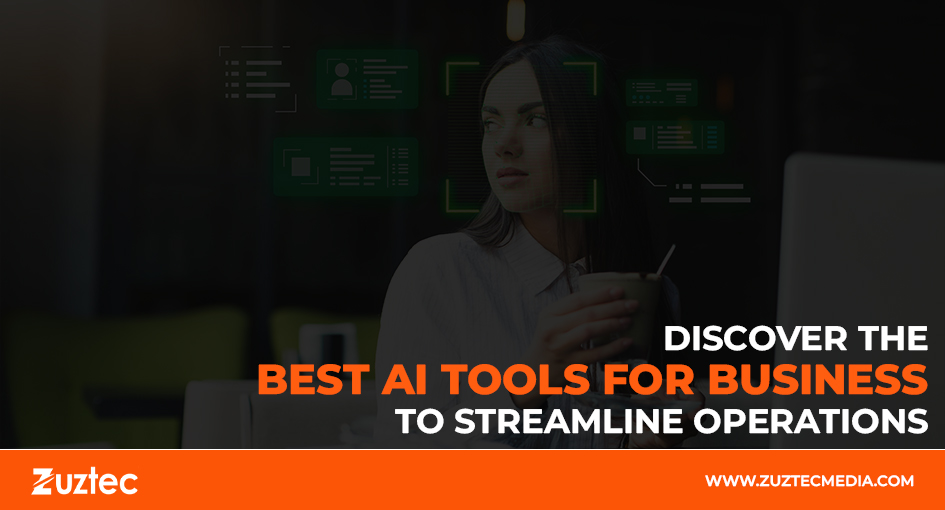
Discover the Best AI Tools for Business to Streamline Operations
In an increasingly competitive landscape, businesses are constantly seeking ways to enhance efficiency, reduce costs, and improve overall operations. As organizations strive to maintain their edge, many are turning to innovative technologies to support their goals. Enter artificial intelligence (AI), a game-changing technology that can revolutionize how companies function. Today, the best AI tools for business offer solutions that automate repetitive tasks, analyze vast amounts of data, and facilitate decision-making processes. By doing so, these tools allow companies to focus on what truly matters: growth, customer satisfaction, and long-term success.
As companies navigate the complexities of modern operations, integrating AI tools has become essential for staying ahead of the curve. These tools encompass a wide range of applications, from chatbots and virtual assistants that enhance customer interactions to advanced analytics platforms and project management software that streamline internal workflows. By leveraging AI, businesses can not only optimize their operations but also enhance productivity and gain insights that were previously unattainable.
In this article, we will explore some of the best AI tools for business available today, showcasing how they can help organizations optimize operations across various functions. Whether you are a small startup looking to grow or an established enterprise seeking efficiency improvements, understanding and utilizing these AI tools can significantly enhance your operational effectiveness and strategic decision-making. By embracing AI, businesses can position themselves for sustained success in an ever-evolving marketplace.
1. Best AI tools for business: AI-Powered Project Management Tools
Managing projects efficiently is crucial for any business, and AI-powered project management tools have emerged as invaluable assets. Tools like Monday.com and Asana incorporate AI features that help teams prioritize tasks, allocate resources effectively, and predict project timelines.
These platforms utilize machine learning algorithms to analyze historical project data, offering insights that can enhance future project planning. For example, they can identify bottlenecks, suggest task dependencies, and even forecast potential risks. By automating administrative tasks, such as scheduling and updates, these tools free up time for team members to focus on creative and strategic initiatives.
2. Intelligent Customer Relationship Management (CRM) Systems
Customer relationship management is another area where the best AI tools for business shine. AI-powered CRMs, such as Salesforce Einstein and HubSpot, enable businesses to enhance customer interactions by providing valuable insights and automation features.
These platforms can analyze customer behavior and preferences, allowing sales teams to tailor their outreach strategies effectively. AI-driven chatbots can handle routine customer inquiries, freeing up human agents to deal with more complex issues. Moreover, predictive analytics can help identify high-value leads and suggest optimal times for follow-ups, ultimately improving conversion rates and customer satisfaction.
3. AI-Enhanced Marketing Automation
Marketing has undergone a significant transformation with the advent of AI technologies. The best AI tools for business, such as Marketo and Mailchimp, use AI to optimize marketing campaigns and deliver personalized content to target audiences. By analyzing data from various sources, these tools can segment audiences based on behaviors and preferences, ensuring that marketing messages resonate with specific demographics.
AI algorithms can also predict which campaigns are likely to succeed, enabling businesses to allocate budgets more effectively and maximize return on investment (ROI). Furthermore, the best AI tools for business can automate repetitive tasks like email scheduling and social media posting, allowing marketing teams to focus on strategy and creative content.
4. Data Analytics and Business Intelligence Tools
Data-driven decision-making is essential for modern businesses, and AI-powered data analytics tools can significantly enhance this process. Tools like Tableau and Power BI use AI to analyze large datasets and provide actionable insights that drive strategic decisions.
These platforms can visualize complex data in user-friendly formats, making it easier for stakeholders to understand trends and patterns. With AI algorithms, they can also predict future performance based on historical data, helping businesses make informed decisions about resource allocation, inventory management, and market expansion.
5. Virtual Assistants and Chatbots
One of the most visible applications of AI in business is through virtual assistants and chatbots. Tools like ChatGPT, Drift, and Intercom enable businesses to automate customer interactions, providing 24/7 support and enhancing user experience.
Chatbots can handle a variety of tasks, from answering frequently asked questions to assisting customers in navigating websites or placing orders. This automation not only improves customer satisfaction but also reduces the workload on human agents, allowing them to focus on more complex customer needs. Furthermore, these tools can learn from interactions, continually improving their responses and increasing efficiency over time.
6. Human Resources and Talent Management Tools
Managing talent is a critical function in any organization, and AI tools are transforming how businesses handle recruitment and employee engagement. Platforms like BambooHR and HireVue leverage AI to streamline the hiring process by automating resume screening and conducting initial interviews.
These tools use machine learning algorithms to assess candidate qualifications and match them with job requirements, reducing the time spent on manual reviews. Additionally, AI can analyze employee engagement data to identify trends, helping HR teams address issues proactively and improve workplace culture. By streamlining HR operations, businesses can attract top talent and retain valuable employees.
In conclusion, the integration of AI tools into business operations has become a necessity for organizations looking to thrive in a competitive landscape. From project management and CRM systems to marketing automation and supply chain management, the best AI tools for business offer innovative solutions that streamline processes and enhance efficiency.
By leveraging these tools, businesses can automate repetitive tasks, gain valuable insights, and make data-driven decisions that lead to improved performance and customer satisfaction. As AI technology continues to evolve, embracing these tools will be essential for businesses seeking to maintain a competitive edge and drive sustainable growth in the digital age. Whether you are a small startup or a large enterprise, exploring and implementing these AI solutions can unlock new opportunities and streamline your operations effectively.

